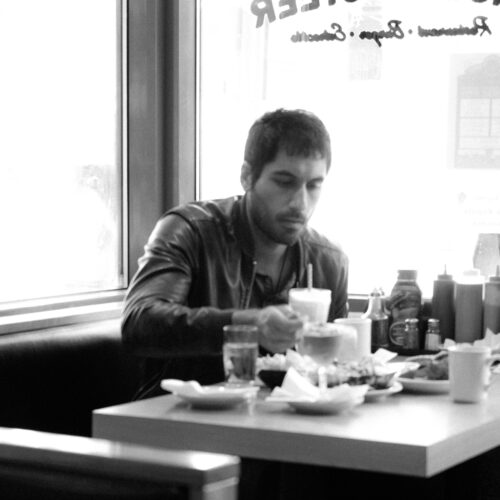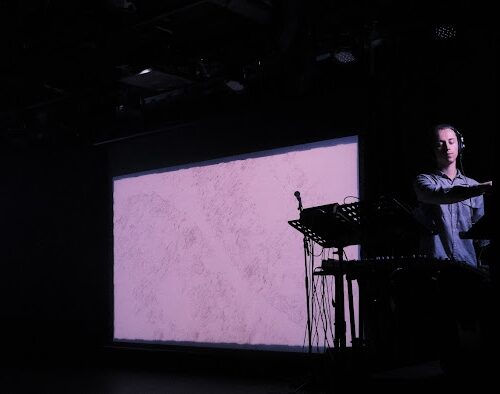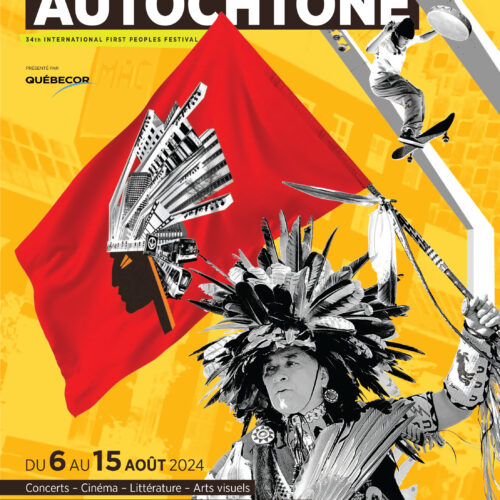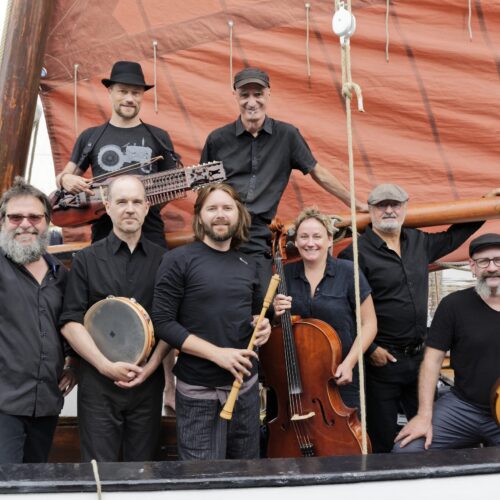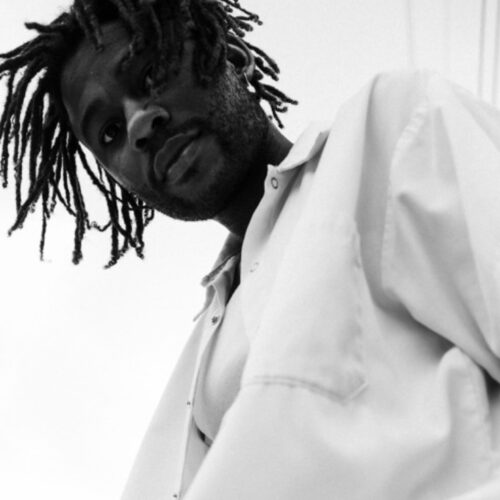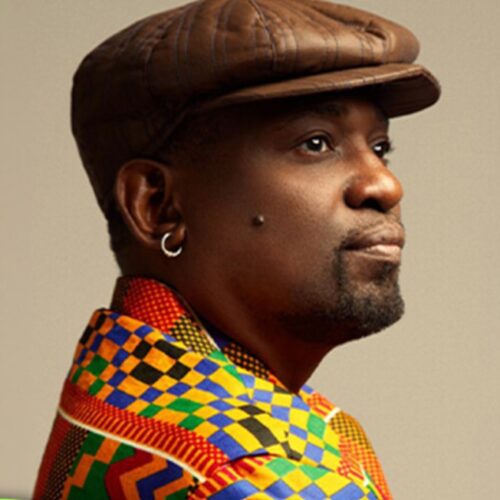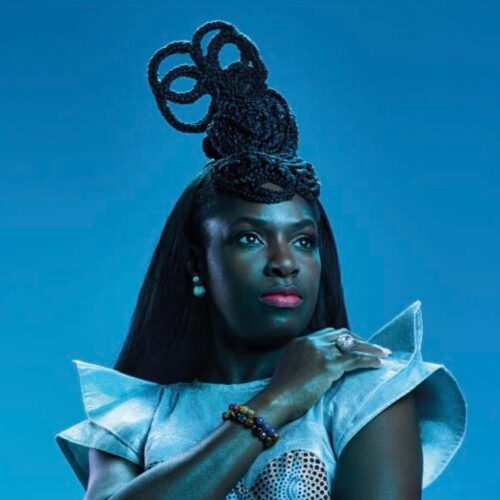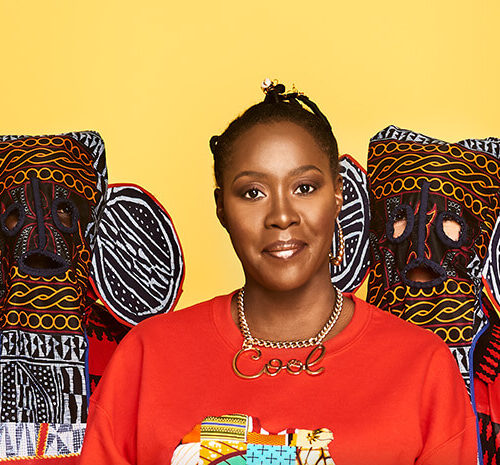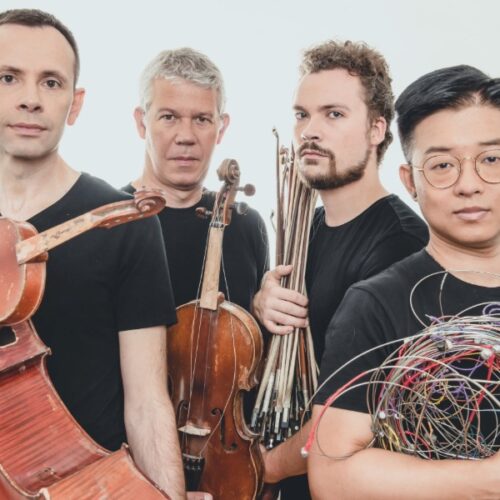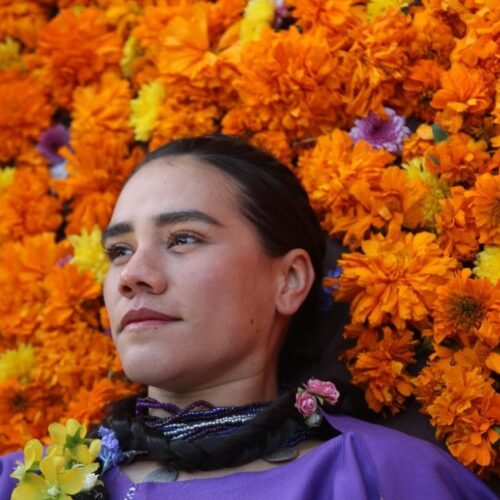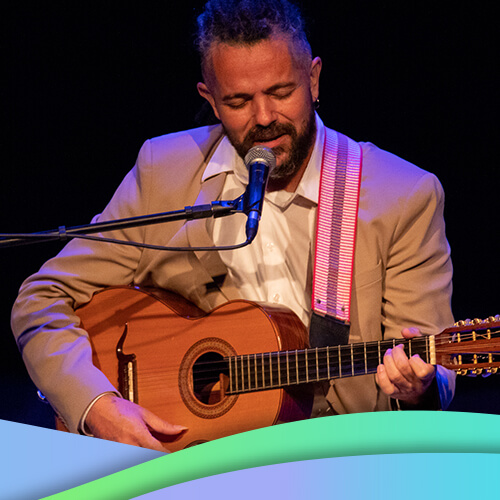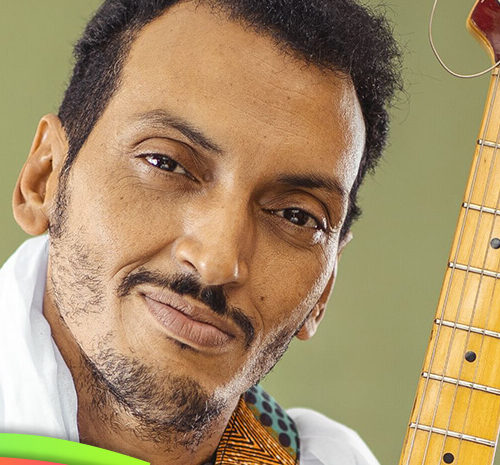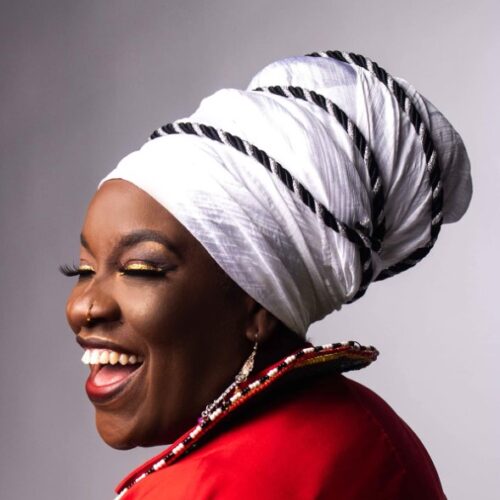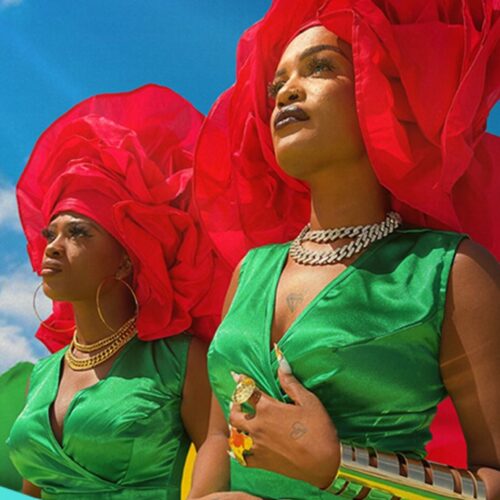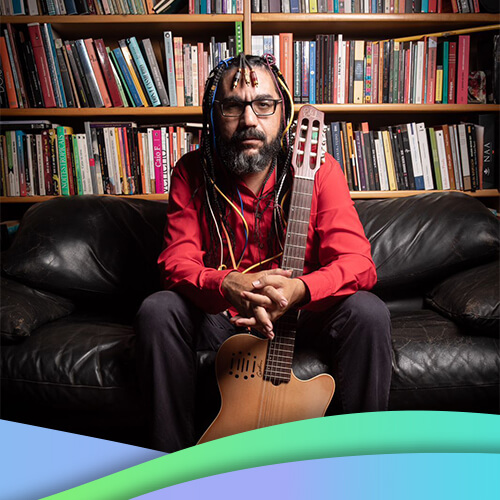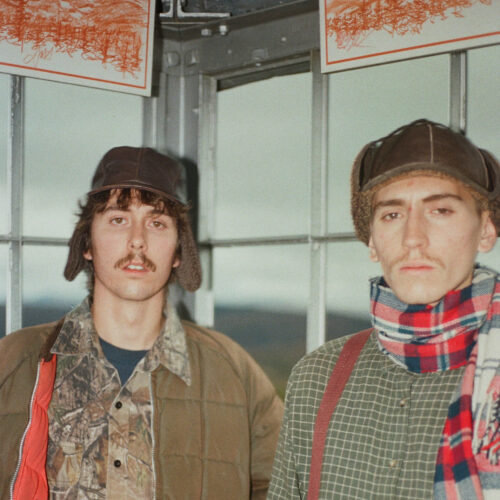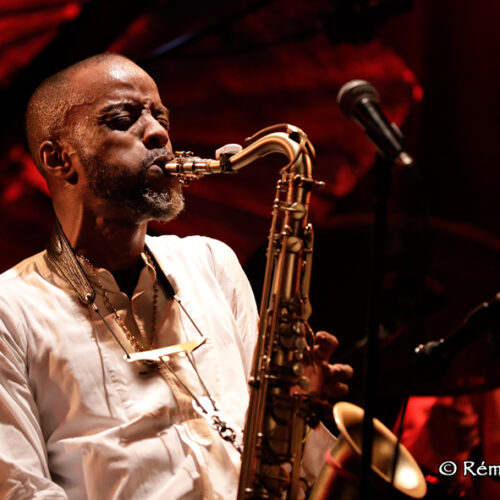Additional Information
The Stick&Bow ensemble is one of a kind. Composed of Krystina Marcoux on marimba and cellist Juan Sebastian Delgado, Stick&Bow offers a varied repertoire of unexpected sounds, sure to attract the attention of music lovers of all horizons. The ensemble has made a number of recordings that demonstrate their mastery of various styles and repertoires from different eras. Stick&Bow is also known for its arrangements and numerous commissions.
The duo will soon be performing at the Festival de Lanaudière. In preparation for this concert in an atypical setting (on a bison farm!) PAN M 360 spoke to Krystina Marcoux and Juan Sebastian Delgado to learn more about their ensemble, their work, and their musical mission.
PAN M 360: Hello! To begin with, you’re a rather atypical duo. How did you come to form this ensemble?
Juan Sebastian Delgado: It’s true, we are a rather atypical duo! But there are a number of similarities between the marimba and the cello. They’re both made of wood, and both have the same 5-octave register. Our ensemble came into being almost 5 years ago (next season will mark Stick&Bow’s fifth anniversary). It all began when we found a piece by an Argentinian composer, one of the few originally written for cello and marimba. It was a contemporary piece, and we really like contemporary music. We played it, liked it, and decided to keep exploring the repertoire!
PAN M 360: You say you’re very fond of contemporary music. In fact, you do a lot of commissioned works, as well as arrangements. What’s the breakdown between commissions and arrangements in your repertoire?
Krystina Marcoux: In fact, since next season is our anniversary season, we’re doing a lot of commission work. We thought we’d take the opportunity to work on new pieces and do a concert entirely dedicated to new works. On the other hand, when we’re on tour, two-thirds or even three-quarters of our concerts are arrangements. The rest of the works are commissions. That’s our balance because we already like the variety of what we present to the public. We go from classical works to works of today, interspersing pieces by current composers.
PAN M 360: And what do you want to offer the public by organizing your concert program in this way?
Krystina Marcoux: It allows us to show people what’s possible with the marimba since there isn’t much repertoire. It’s always a surprise for people to see what the marimba can do. The instrument itself also remains a surprise. It’s a great way of showcasing the commissioned works, giving the audience elements to listen to.
Juan Sebastian Delgado: In the classical tradition, we usually play long pieces, such as sonatas with three or four movements. Sometimes, long pieces are great because they’re like journeys. But sometimes we’ll commission shorter works, lasting just a few minutes. That way, we give the audience a chance to enter a different world. We’re trying to get away from a rather academic world.
PAN M 360: You mentioned arrangements, which you make yourself. Tell us about your work process.
Krystina Marcoux: It’s a lot of work! In fact, we’re lucky to be a cello and a marimba, because it gives us the opportunity to do whatever we want. There’s no tradition behind us, the territory is neutral. So we take the works we like, a bit of every aesthetic, whether it’s David Bowie or Beethoven. And we try! Of course, we’d already started exploring even before we became a stable duo, so since we’ve been exploring for a long time, we can now quickly determine what will work and what won’t. We also choose pieces that we’re comfortable with. Also, we choose pieces that we love! When we go on stage, it’s with pieces we really like. When we arrange the pieces, we do it together, in a studio. Then there are also exchanges, where we work separately and send each other bits and pieces.
Juan Sebastian Delgado: We also like research. We choose pieces we like, of course, that’s important, but there’s always a thematic conception. For example, on our first album (Résonance, 2019), which is mostly arrangements, there are resonances, historical resonances. We mix music by Bach with a piece by Nina Simone, because Bach’s music has greatly influenced jazz. We also try to find points of connection and interesting links. We start with the music we like and then try to go further in designing the programs.
PAN M 360: The program you’ll be presenting at your Lanaudière Festival concert is taken from your debut album, isn’t it?
Juan Sebastian Delgado: Most of it. I’d say half the pieces. There are some pieces that have changed a lot over the years, but we’ve kept the same titles, and the same heart. We like the idea of this kind of resonance. The resonance between the marimba and the cello, the resonance between traditions, the historical resonance between pieces…
Krystina Marcoux: We’ve been playing this program for five years now, so it’s evolved a lot since then. Right now, there are two main resonances in the program. In the first part, we start with Nina Simone, the love of Bach, then Piazzolla, Gershwin. The first half is all about the resonance of jazz if you like. The second half is folk influences. We start with a piece that a Canadian composer, Jason Noble, wrote for us. This piece is always a hit! Then we do a whole loop, with Bowie, Beethoven…
PAN M 360: And how do you approach these pieces? How do you approach this musical journey?
Juan Sebastian Delgado: The historical approach and the research also has an impact here. For example, we play Piazzolla, because he had such a strong impact. Everyone plays Piazzolla, but if we play Piazzolla, we also have to play Nina Simone, because there’s a link. We try not to play everything the same way. It takes a different approach, technically of course, but also in terms of knowledge, styles… You really have to be curious.
PAN M 360: Turning now to your Lanaudière concert… It’s on a farm! Have you ever performed in this kind of less traditional setting?
Krystina Marcoux: Yes, very much so! It’s something we really enjoy doing. One of our first concerts was in France, in a barn, but an adapted barn all the same. It was so beautiful, it looked like a concert hall! Also, we’ve already had a series of concerts in really atypical places in Montreal, like a bike shop, a barbershop, an apartment… It’s something we really like. It promises to be very interesting.
PAN M 360: And why is it important for you to sometimes step outside the more traditional framework?
Juan Sebastian Delgado: It’s important for so many reasons, we could talk about it for hours! For me, it’s a bit like asking the question “Why is it important to play contemporary music?” We were born into this century, and even though we’re classically trained musicians, we have to be able to adapt, change, and try out new ideas. You have to be more flexible. We need to take music to different places so that everyone can have access to it. Music shouldn’t just be for the elite who pay a lot of money. For us, it’s simply part of our lives.
PAN M 360: Finally, what would you like your audience to experience at your next concert?
Krystina Marcoux: I’d say that audiences let themselves be surprised. With the cello, people are always happy to hear it. For the marimba, it can sometimes be more surprising, bizarre… You have to let yourself be surprised by the instrumental combination. Audiences who are a little more familiar with the classical repertoire may be surprised by the arrangements, which will be interpreted a little differently. Here’s an example. Since the marimba doesn’t sound like a piano, we have no choice but to arrange it differently. It’s also important to let yourself get caught up in the musical journey we’re proposing, which is nonetheless very wide-ranging. In the space of an hour, there will be many different aesthetics. We also talk a lot during the concert, telling anecdotes about the pieces. It’s really a moment of sharing that we want to offer, in an intimate context.
The duo Stick&Bow will perform during the Festival de Lanaudière. The concert will take place on July 30 at the Terre des bisons farm, at 11:30 AM. Info and tickets HERE!

